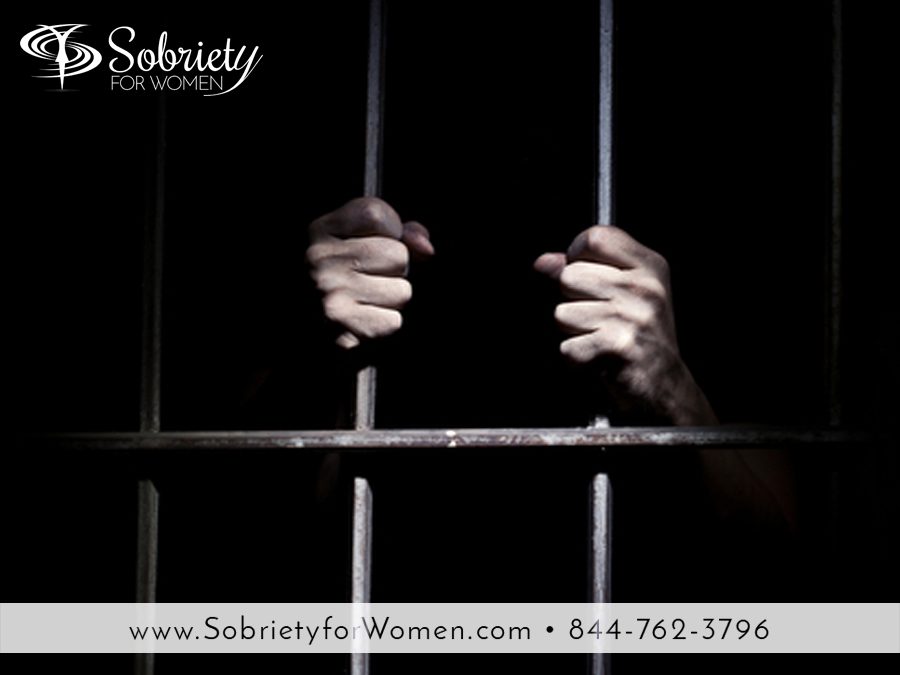by Sally Rosa | May 8, 2025 | Mental Health
Transform Your Life with Mental Wellness and Sobriety
Join us on a journey to a healthier, more balanced life. Discover the power of mental health and sobriety in creating a brighter future.
Our mission is to support women in achieving mental wellness and sobriety, recognizing the profound impact these elements have on overall well-being. We believe in empowering women to take control of their lives, fostering a supportive community where mental health and sobriety are prioritized. Our approach is holistic, focusing on nurturing both the mind and body to create lasting change.
We are dedicated to providing resources and guidance for women seeking to improve their mental health and maintain sobriety. Understanding the unique challenges women face, we offer a compassionate and understanding environment where every woman can find the support she needs. Our goal is to inspire and uplift, helping women to thrive in all aspects of their lives.
Comprehensive Support Services
Personalized therapy sessions tailored to address your unique mental health and sobriety needs.
A
Join a community of women who share similar experiences and support each other on the path to wellness.
Participate in workshops designed to enhance your mental health and promote a sober lifestyle.
Learn techniques to manage stress and improve mental clarity through mindfulness practices.
Receive expert advice on nutrition to support your mental health and sobriety journey.
Access round-the-clock support from professionals who understand your challenges and are ready to help.
“Finding my path to sobriety was challenging, but the community here has been a beacon of hope. I am now living a life filled with purpose and joy.”
“Thanks to the incredible support and resources, I’ve learned to prioritize my mental health. Every day is a new opportunity to thrive.”
“The journey to sobriety has transformed my life. The encouragement and understanding I’ve received have been invaluable.”
Insights and Inspirations
by Sally Rosa | May 24, 2025 | Relationships in Recovery | 0 Comments
Can’t stop checking your ex’s Facebook? You’re not alone—and you’re not broken. In this post, we share 7 powerful, recovery-based tips to help you break the cycle of Facebook stalking, heal obsessive love, and reclaim your peace after a breakup.
by Sally Rosa | May 8, 2025 | Mental Health | 1 Comment
Join us on a journey to a healthier, more balanced life. Discover the power of mental health and sobriety in creating a brighter future.Our mission is to support women in achieving mental wellness and sobriety, recognizing the profound impact these elements have on...
by A Women in Sobriety | May 8, 2025 | Addiction Articles, Stories from Women in Sobriety | 0 Comments
Substance use disorder doesn’t just affect individuals—it shapes families, rewrites futures, and redefines identity. But within every storm lies a story of survival. This is my substance use disorder recovery story — a journey that took me from chaos and addiction to...
by A Women in Sobriety | May 7, 2025 | Drug Addiction | 0 Comments
Teenagers today face increasing pressure, from academics to peer expectations, and unfortunately, many end up in trouble with drug addiction during high school. This phase of life is a critical developmental period, making teens more vulnerable to experimenting with...
by A Women in Sobriety | August 28, 2017 | Addiction Articles, Blog | 2 Comments
A Moment of Clarity One day it hit me that I did not want to do these pills anymore. I just wanted to be normal. These pills had taken control of my life for the last few years and I could not remember the last day that I had not had them in my hand. I thought that...
by A Women in Sobriety | August 21, 2017 | Addiction Articles, Blog | 0 Comments
I “Was” a good kid Fast forward to court. I was a good kid with no criminal record. The judge told me if I did a few things I would not be facing jail time or a criminal record. If I did not do those things I would be charged with 2 felonies and 3 misdemeanor charges....

by Fiona Stockard | Apr 2, 2015 | Addiction Articles, Addiction Treatment
Heroin Addict or Heroin Dealer?
I just read the story of Matthew, a twenty-four year old heroin addict from Texas. Matthew, like many of today’s addicts, was brought up in a solid middle-class household. He’s from a suburb of Dallas and went to a good high school.

Matthew has also been in prison for three years for the sale and distribution of heroin. As of writing this, he’s probably a free man. The article I read was written in mid 2014, just as he was about to be released.
Matthew, I hope you’re free from actual prison and the self-imposed prison of addiction!
Matthew’s story resonated with me because his story could have easily been mine. To hear him tell it, he only sold heroin to support his own habit. How many of us addicts and alcoholics have been in a similar situation? I know I sure have!
While I never sold heroin, I did engage in illegal activities to support my addiction. I’m not proud of that fact, but it’s the simple truth. I’m pretty certain I’m not alone in my actions either. In a society that marginalizes addiction, what other option do addicts have?
While reading it, Matthew’s story raised a number of questions. Should addicts be treated the same as high profile drug dealers? Should addicts be sent to jail instead of the treatment we so desperately need?
Find Matthew’s story below. I hope it touches you all as much as it touched me!
A Quick Downward Spiral
Matthew was introduced to heroin in high school. This was the mid-2000’s and a drug called “cheese” was all the rage. Cheese, for those who may not remember, was a popular form of black tar heroin mixed with Tylenol PM.
After becoming addicted, Matthew started selling small amounts of cheese to support his habit. He’s quoted as saying, “I started selling twenties, thirties, whatever. Mainly to friends and people at my high school. Just some small-time dealing” (Huffington Post).
I can relate to that! Again, I never sold heroin, but I certainly wasn’t a saint during my addiction. I lied, stole, and sold whatever I could get my hands on, narcotic or otherwise.
As his addiction grew, Matthew began to inject heroin. He’s quoted as saying, “I went from snorting to shooting in like six months. I never thought I’d be using a needle. People started off looking for powder and before you know it, you’re going to upgrade” (Huffington Post).
Again, I can relate. I started out swallowing pills. Before long, I moved to sniffing them. Not long after, I was introduced to heroin and fell prey to the needle, as so many addicts do.
Matthew was selling cheese to maintain his personal habit. He soon sold to the wrong buyer, though. The Huffington Post reports,
“It ended when he made some sales to an undercover agent who infiltrated his circle of friends. The DEA was targeting dealers selling to high school students…He’d been using and selling for little more than two years.”
I was addicted to heroin for two years too. From seventeen to nineteen, my life was a train wreck of dishonesty, broken promises, petty crime, and disappointment. Thankfully, I didn’t end up in prison like Matthew, though it was a very real possibility.
Treatment Not Jail
At nineteen years old, I went to an inpatient treatment center. It was my second in as many years. I was spared the punishment Matthew received. I was afforded a real chance at the so-called rehabilitation that prisons claims to offer.
Imagine if all those who need treatment received it! Imagine if instead of prison, addicts were offered substance abuse treatment! What a difference that would make!
Sadly, that’s not the world we live in. It is, however, a worthy goal to work towards. Organizations like Faces & Voices of Recovery are advocating for addiction laws to be changed nationwide.
And that’s just one advocacy group! There are thousands more like them across the world, all with one common goal – to break the misunderstanding and stigma surrounding addiction and recovery.

What a great goal! If even a small number of these groups succeed, I believe we’ll see a real shift away from jailing addicts and towards offering affordable treatment options.
Imagine if Matthew was placed in rehab instead of jail. Then, maybe he’d be writing this essay today. Maybe he’d be offering his experience and strength to the still sick and suffering addict. We can only hope.

by Sally Rosa | Mar 19, 2015 | 12 Steps, Addiction Articles
Spirituality & Science…Together?
We all know that AA and other twelve-step fellowships work. Most women in long-term recovery are living, breathing, and awesome proof of it! What we don’t know, though, is why AA works.

Let me clarify, we don’t know scientifically why AA works. While it’s easy to say that the twelve-steps work because of God, that answer doesn’t satisfy most scientists, researchers, or academics.
The first question you may be asking yourself is who cares what scientists think? I know I certainly asked myself that more than once! My opinion, our opinion really, doesn’t matter in this case, though. After all, think of how many suffering addicts and alcoholics would flock to AA if it were better understood!
(I know, I know, recovery is for people who want it and do it, not for people who need it. That fact aside, we can all agree that a better understand of AA, NA, CA, etc. would benefit the public at large. Remember, our lives today are about how we can best help everyone!)
Well, a substance abuse and mental health counselor named Joe Nowinski set out to understand the how and why of Alcoholics Anonymous. Find out what he found out below!
A Surprising Introduction
In the 1980’s, Joe Nowinski worked in student health at the University of Connecticut. One day, he went to a training at Hazelden, one of the country’s oldest and most respected treatment centers.
Of his introduction to AA, Joe says,
“I looked up at a large poster on the wall. It was the 12 steps. My eye was immediately caught by the word God that appeared there a number of times, and my gut reaction was something like, “Oh no! I’m a cognitive-behavioral therapist! I don’t believe in God!” (The Fix).
Sounds like someone had a little contempt prior to investigation!
After spending a week at Hazelden, Joe soon changed his mind. He was able to experience firsthand the power of twelve-step recovery. He saw the change it brought over people. He saw the benefits of honesty, open mindedness, and willingness!
Research into 12-Step Recovery
Following his auspicious introduction to Alcoholics Anonymous, Joe participated in something called Project MATCH. This was a study that looked at the outcomes, or rates of abstinence, quality of life, etc., of various therapies. It was also, to date, the largest psychotherapy outcome study ever conducted.
The results were astounding to researchers and clinicians alike. It turns out that “Twelve-Step Facilitation Treatment,” aka becoming involved in a twelve-step fellowship, kept more people sober!
William R. Miller, a therapist involved in Project MATCH, wrote,
“On at least one time-honored outcome measure—the percentage of patients maintaining complete abstinence—those in the Twelve Step Facilitation treatment fared significantly better than did patients in the other two conditions—a substantial advantage of about 10 percentage points that endured across three years” (The Fix).
I’ll stick with something that gives me a 10% better shot at staying sober!
Various other studies have examined the effectiveness of twelve-step recovery. “Twelve-Step Facilitation Treatment” was compared to something called Motivational Enhancement Therapy. The results showed that those involved with “Twelve-Step Facilitation Treatment” (really, can we just call it working the steps!!) stayed sober for longer.
Another type of therapy that includes twelve-step principles is called MAAEZ (which stands for Making AA Easier). MAAEZ has been shown to lead to higher rates of abstinence than Cognitive Behavioral Therapy, long considered the gold standard of addiction treatment.

So, it’s abundantly clear that twelve-step based therapies work! It’s obvious, beyond a shadow of a doubt, that twelve-step principles work. What Joe Nowinski also found out is that all self-help groups help people.
Organizations like SMART Recovery and Women for Sobriety (not to be confused with us, Sobriety for Women!) also help boost rates of abstinence and improve quality of life.
What Joe didn’t find out was exactly why AA and other twelve-step fellowships work. While that’s unfortunate, all he had to do to get an answer, however unscientific it might be, was ask a member of twelve-step recovery!
The twelve-steps work because they take me outside of myself. They allow me, through a God of my own understanding, to become selfless, honest, and strong. They allow all of us to experience real freedom for the first time!
by A Women in Sobriety | Nov 25, 2014 | Addiction Articles, Drug Addiction
The War on Drugs = The War on Minorities?

Some might say the question I pose is a stretch, but is it? Ever since the Reagan era and the birth of the War on Drugs, minorities have been prosecuted, sentenced, and imprisoned for the distribution and possession of drugs.
Black and Latino men and women are sitting in jail for the sale of small amounts of marijuana, a substance that’s now legal in four states and Washington DC. Now, I’m not arguing that selling drugs is acceptable. It isn’t. Rather, I’d like to shine a light on the unjust practice of law enforcement targeting minorities.
The War on Drugs is a Manhunt
That says it all. The War on Drugs is a manhunt. It’s an all out blitz to find drugs at any and all costs. The most precious things thrown by the wayside are individuals’ rights. As a result of numerous less-than-savory practices, the divide between law enforcement and those living in low-income areas grows.
Protected under the flimsy idea of “cleaning up the streets,” the police have lost all sight of civil rights. So how does a tragedy like Ferguson happen? Why does it seem the police feel justified in there extreme actions. For that matter, why is it that most of us assume what happened is unjust. Because police have been conditioned to distrust the citizens and take extreme action. In turn, citizens are conditioned to mistrust the police and assume they always take extreme actions. Because that’s what our police officers are trained to do.
That sounds like hyperbole, right? Well, take a look at policies like New York City’s Stop and Frisk. The New York Civil Liberties Union had the following to say,
“The NYPD’s stop-and-frisk practices raise serious concerns over racial profiling, illegal stops and privacy rights. The Department’s own reports on its stop-and-frisk activity confirm what many people in communities of color across the city have long known: The police are stopping hundreds of thousands of law abiding New Yorkers every year, and the vast majority are black and Latino. An analysis by the NYCLU revealed that innocent New Yorkers have been subjected to police stops and street interrogations more than 4 million times since 2002, and that black and Latino communities continue to be the overwhelming target of these tactics. Nearly nine out of 10 stopped-and-frisked New Yorkers have been completely innocent, according to the NYPD’s own reports.”
Yes, the NYCLU is talking about New York, not Ferguson. Still, the fact that these policies are acceptable and implemented in the first place speaks volumes. Once again, it becomes readily apparent that law enforcement’s approach to fighting the War on Drugs is one that does more harm than good.
Is the War on Drugs Really a War?
Before we go any further, let’s define what war actually is. Wikipedia defines war as “an organized and often prolonged conflict that is carried out by states or non-state actors. It is generally characterized by extreme violence, social disruption and an attempt at economic destruction…”
By this definition (extreme violence, social disruption, attempted economic destruction), the War on Drugs is, without a shadow of a doubt, a war. It’s a war on communities like Ferguson. No wonder the situation there has reached a boiling point. I’m just surprised it hasn’t happened sooner.
The citizens of Ferguson, and many other communities like it, seem to be fighting a war for their basic freedoms. That’s a fight many of us have never had to face. Riots are certainly no solution to the problem, but it’s an understandable reaction to decades of unfair police practices.
What’s the Solution?
The sale of drugs is rampant across America. The use of drugs is rampant across America. Addiction is rampant across America. So, how do we solve the problem? Well, the first step is starting to deal with addiction properly.
Instead of treating the problem, we throw people, more often that not minorities, in jail. This does nothing but compound the problem. Now, someone struggling with addiction is imprisoned with thousands of others struggling with addiction. It’s no wonder drug abuse is so prevalent in jails and prisons.
Taking a good look at the root of the problem, it’s glaringly obvious that there’s a lack of proper treatment for addiction. Okay, fair enough. Everyone knows that, though. It’s no surprise that there aren’t enough substance abuse treatment options available in the U.S.
I think this lack of treatment options ties directly in with the abuse authority figures bestow upon citizens. It’s no wonder people go to jail and come out with a chip on their shoulder. They’ve been abused by police every step of the way.
Imagine if police in our neighborhoods behaved in the same fashion they do in low-income areas. That would never stand. That would never be acceptable.
So, what’s the solution? Simple. We end the War on Drugs and start the peace treaty on drugs. We treat the problem instead of fighting it. Our current approach is brutal, barbaric, and inhumane. This is a direct result of a lack of education, understanding, and compassion. Police are trigger-happy and have grown accustomed to doing whatever it takes to “find the dope.”
If our attitudes, and those of people in positions of power, don’t seriously change, there are going to be more Ferguson, Missouri’s.









